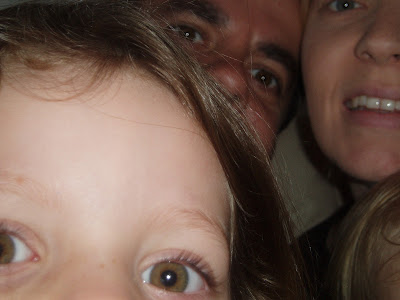The picture looks like this; Friday night drinks and dinner for four female work colleagues, all working for a major Aussie finance firm. Two are early 20s, one around 40 and the ultra hip JB has just turned 60.
JB is a fascinating woman. Former wife and original domestic goddess she turned her life around when her DH took off and left her for a 20 something air head, when he and JB both turned 50.
JB ended up working with me doing finance marketing. She is intelligent, witty, interesting, full of stories, takes no crap and loves a good laugh. She is extremely fun as a Friday night drinks companion.
On this particular warm sunny South bank drinking night. The conversation ended up turning to the undesirable male partner of another colleague.
"He's a 'c' of a man" says someone.
"Oh no." says JB. "Let's not grace him with such a sacred word."
And so begins the conversation of how we (yes, you dear reader) must all take back the power of the 'c' word.
See you next Tuesday is generally considered the most derogatory word in the English language. A description of your body is the most despised word you shall ever hear, and it is time to turn that around.
But how?
Easy says JB. You need to start saying see you next Tuesday frequently, but not in a way you are used to. From now on you will only say it in a positive way. You won't describe something/someone as a 'c'. You won't mutter it ever when things are going very very wrong, and you wont cringe when someone else says it.
To howls of laughter (red wine consumed possibly not even needed) JB suggested such things as;
"Wow, my see you next Tuesday looks great in these new designer undies."
or
"I am not sure if I have a see you next Tuesday illness/disease that may need some attention."
or perhaps,
"Just had a pap smear, the doctor was nice enough to warm the instruments before placing them in my see you next Tuesday."
The more people that push the word into mainstream language (but only with positive tones) the better and sooner the change will commence.
But do you think you could join the cause and continue the fight for women's rights that women like JB and our mothers worked on during the 1960's and 1970's?
Cultural change is hard, it takes brave, intelligent, confident and innovative women.
Are you one of them?
 I really shouldn't read it, but on work days I tuck into the MX newspaper on my way home on the train.
I really shouldn't read it, but on work days I tuck into the MX newspaper on my way home on the train. 


































